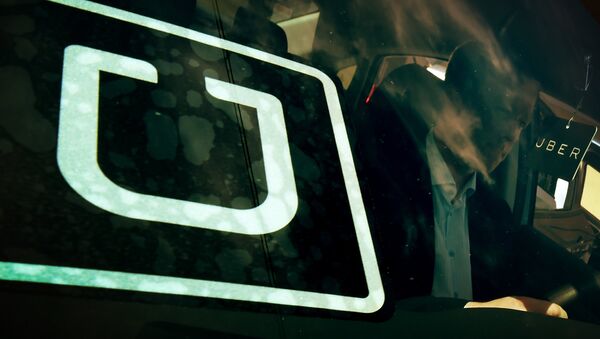The electrically powered PAV - “personal air vehicle” - will have the capability of carrying up to four passengers on trips of up to 60 miles (96.5 km) at speeds reaching 180 mph (290 kmh), the partners said Monday.
Uber Elevate has already signed up more traditional aerospace partners such as Embraer, Bell and Boeing subsidiary Aurora, but “Hyundai is our first vehicle partner with experience of manufacturing passenger cars on a global scale,” Eric Allison, head of Uber Elevate, said in a statement.
“We believe Hyundai has the potential to build Uber Air vehicles at rates unseen in the current aerospace industry, producing high quality, reliable aircraft at high volumes to drive down passenger costs per trip,” he added.
First unveiled in 2016, Uber Elevate aims to expand the ride-hailing giant’s reach by linking urban centres and their suburbs, with air taxis expected to leapfrog traffic congestion by cruising at altitudes of around 300 – 600 meters. The company anticipates the roughly 80-kilometres trip from the Marina district near Uber headquarters in San Francisco to downtown San Jose, in the heart of Silicon Valley, would take about 15 minutes. The same trip can take more than 2 hours by car because of the traffic. Uber Elevate is planning to begin demonstration flights this year, while the commercial service launch is planned for 2023, with operations initially set to debut in Dallas, Los Angeles and Melbourne, Australia.
CES 2020: Uber collaborates with Hyundai to develop flying taxi! #AI #TechTrends #ArtificialIntelligence #CES2020 #uber #Hyundai #VIKEZ #flyingcar #innovation #aviation #video #aerospace pic.twitter.com/d77RzmoeeR
— Vikez (@Vikezmedia) January 7, 2020
Hyundai said its decision to develop the S-A1 is part of its broader goal of becoming a “smart mobility solution provider.”
“Our vision of Urban Air Mobility will transform the concept of urban transportation,” said Jaiwon Shin, executive vice president and head of Hyundai’s Urban Air Mobility Division, or UAM. “We expect UAM to vitalize urban communities and provide more quality time to people. We are confident that Uber Elevate is the right partner to make this innovative product readily available to as many customers as possible.”
Hyundai also debuted several other concepts at this year’s CES, including a “hub,” the downsized equivalent of a flying taxi air terminal; and PBV, or “purpose-built vehicle” that could serve as an autonomous shuttle to carry passengers to and from Uber’s Elevate bases.

